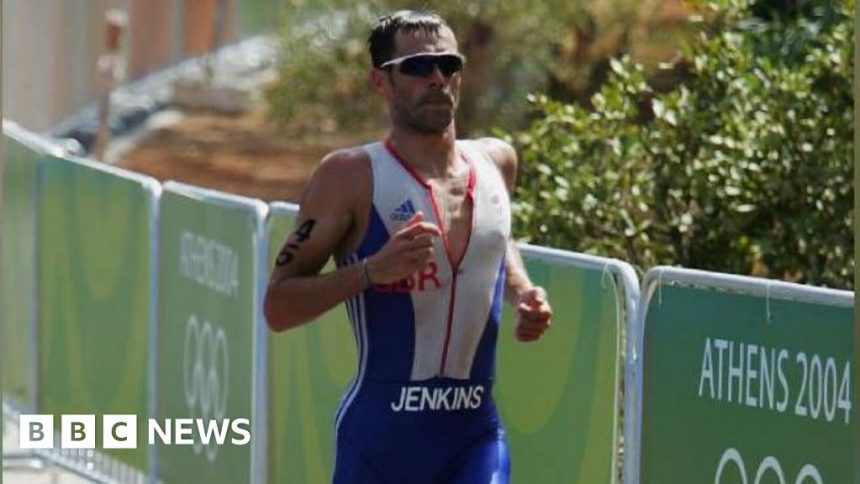Ex-Olympian among first-time election candidates
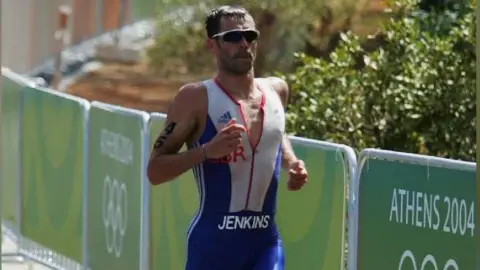 Getty Images
Getty ImagesEx-Olympian Marc Jenkins decided to stand as a candidate for the Conservative Party in the general election after a heated chat with friends in the pub.
“I thought, ‘If I’m prepared to complain, I should be prepared to do something’,” he said.
More than 4,500 candidates are standing in this year’s vote, a record number and a 35.7% increase on the 2019 poll.
Mr Jenkins – who represented Great Britain in triathlon in the 2004 Olympics in Athens – is one of a number of first-time candidates running in the election.
Mr Jenkins, 47, is standing in Gower, near Swansea, and said he did not think his application would be accepted because he did not have a political background.
“I had a massive case of imposter syndrome,” he said.
“I wanted to be able to vote for somebody like me who represented completely normal people.”
Mr Jenkins’s grandfather was a miner and he grew up in a Labour household, voting for the party for most of his life. However he said he has “fundamentally Conservative principles”, and joined the party after Boris Johnson resigned as prime minister.
“I felt as a citizen we should have a choice in who leads the country. So then I joined the Conservative party and then I got interested and read a bit more about politics,” he said.
Also standing in Gower is Tonia Antoniazzi for Labour, Franck Banza for the Liberal Democrats, Kieran Pritchard for Plaid Cymru and Catrin Thomas for Reform.
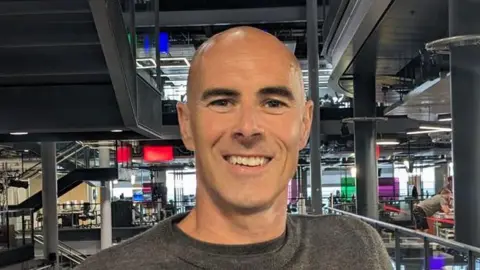
Joanna Stallard, 27, is another first-time candidate, standing for Labour in Dwyfor Meirionnydd, north Wales.
“I got to engage a lot with politics in a way that a lot of teenagers don’t get the opportunity,” she said.
She said she worried about the online abuse directed at women in politics, referencing the attack on Danish Prime Minister Mette Frederiksen in Copenhagen last month, saying it made her “pause for thought”.
However, she said face-to-face interactions had been “really encouraging and positive”.
“People have been really receptive to a young person because how often do they see a young Welsh-speaking woman standing for politics?,” she said.
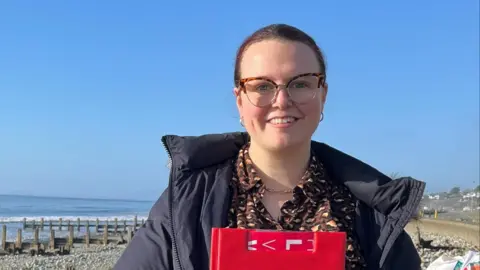
She believed Labour was a natural fit for her, praising its record on gender representation, and said she was passionate about “justice, fairness and equality of opportunity”.
She also said she was focused on increasing representation on Welsh issues, including the Welsh language, which she described as an “afterthought” in UK-wide politics.
“I’m focused on opportunities in general – especially the way society treats marginalised people,” she said.
Also standing in Dwyfor Meirionnydd is Tomos Day for the Conservatives, Phoebe Jenkins for the Liberal Democrats, Lucy Murphy for Reform and Liz Saville-Roberts for Plaid Cymru.
Kiera Marshall, 25, who is standing for Plaid Cymru in Cardiff West, got into politics to fight for areas like those in which she grew up – Townhill, Swansea, which she described as “one of Wales’ poorest council estates”.
“The area struggled and it was very stigmatised, and that just motivates me to fight for areas like mine,” she said.
At university, she said she was “very aware of the stark difference between me and other students”.
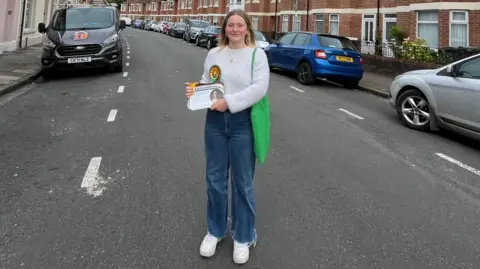
She joined Plaid Cymru because of the issues she said Wales was facing, which she blamed on Conservative and Labour governments.
“Nearly a third of our children live in poverty,” she said. “I have friends who can’t afford rent. We have families with children in Wales who can’t afford to put food on the table.”
She said her party is “offering an alternative”.
Ms Marshall acknowledged that standing as a candidate was a big commitment, and that she had taken unpaid leave from work to campaign.
“I want to be out twice a day. I want to be talking to people, but it is very full on, and not everyone is able to do that,” she said.
Also standing in Cardiff West is Alex Barros-Curtis for Labour, James Robert Hamblin for Conservatives, Peter Meireon Hopkins for Reform and Manda Rigby for Liberal Democrats.



